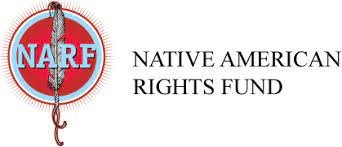Navigating the Legal System: Resources for Native American Families Dealing with Addiction-related Legal Issues
In this blog post, we will explore the resources available to Native American families who are navigating the legal system in the context of addiction.
One of the first steps in addressing legal issues related to addiction is to seek out resources and support. Many Native American communities have tribal justice systems that offer alternatives to traditional criminal justice systems. These systems are designed to reflect cultural values and practices and may be more effective in addressing the underlying causes of addiction.
Tribal justice systems can include drug courts, healing to wellness courts, and other diversion programs. These programs often provide a more supportive and community-oriented approach to addressing addiction-related legal issues, emphasizing rehabilitation and treatment over punishment.
In addition to tribal justice systems, there are also a variety of national organizations that provide legal assistance to Native American individuals and families. The Native American Rights Fund (NARF) is one such organization. NARF provides legal representation and advocacy to Native American communities on a variety of issues, including those related to addiction and the legal system.
Another important resource for Native American families dealing with addiction-related legal issues is the Indian Legal Assistance Program (ILAP). ILAP provides free legal services to eligible Native American clients who are dealing with a range of legal issues, including addiction-related issues such as child custody, guardianship, and housing.
It is also important for Native American families to understand their rights under federal law. The Indian Child Welfare Act (ICWA) is a federal law that provides important protections to Native American children and families involved in the child welfare system. ICWA requires that Native American children be placed with extended family or other Native American families whenever possible, and it mandates that tribal courts have jurisdiction over child welfare cases involving Native American children.
Another federal law that can be helpful to Native American families dealing with addiction-related legal issues is the Americans with Disabilities Act (ADA). The ADA provides protections to individuals with disabilities, including those with addiction and mental health disorders. Under the ADA, individuals with addiction and mental health disorders are entitled to certain accommodations and protections in the workplace, in housing, and in other areas of life.
It is also important to note that many Native American communities have established their own programs and initiatives aimed at addressing addiction and the legal system. For example, the Cherokee Nation of Oklahoma has implemented a variety of initiatives designed to provide support and resources to Native American individuals and families dealing with addiction-related legal issues. These initiatives include a drug court program, a mental health court program, and a DUI court program.
Ultimately, the key to navigating addiction-related legal issues as a Native American family is to seek out resources and support. Whether through tribal justice systems, national organizations, or local initiatives, there are a variety of resources available to help Native American families address these complex and challenging issues. By working together and utilizing the resources available, Native American families can navigate the legal system and address addiction-related issues in a way that reflects their cultural values and practices.
If you or a loved one are dealing with a court related substance abuse or mental health related issue, call now (877)624-1656 to speak with a certified case manager to assist you with navigating your local county or tribal court.


